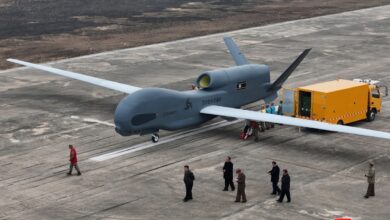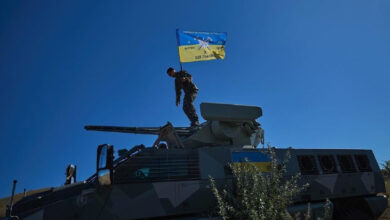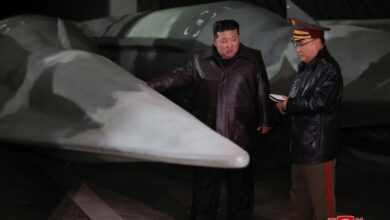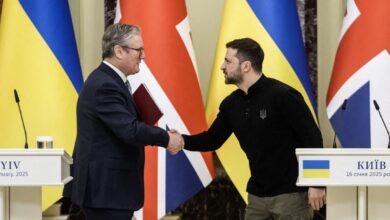
Kiril Avramov and Ruslan Trad
On the evening of July 31, around 23 kilometers from the town of Sibut in the Central African Republic, a vehicle is northbound on a remote road, diverting from the intended original route that would have taken them east to the town of Bambari. Despite the late hour, the people who hired the vehicle hope to arrive at their next destination in safety.
 Earlier that day, while preparing their luggage and equipment, the crew of well-known Russian investigative journalists were supposedly assured by their compatriots stationed in the country that the situation was relatively calm and they could take the trip. Robbery, violent assault and murder in some parts of the impoverished and war-torn African country are commonplace due to continuous fighting along sectarian lines.
Earlier that day, while preparing their luggage and equipment, the crew of well-known Russian investigative journalists were supposedly assured by their compatriots stationed in the country that the situation was relatively calm and they could take the trip. Robbery, violent assault and murder in some parts of the impoverished and war-torn African country are commonplace due to continuous fighting along sectarian lines.
The trip that night was fatal for Alexander Rastorguyev, Kirill Radchenko and Orkhan Dzhemal who never returned to safety. Their murders sent shockwaves around the globe. The Russian crew enjoyed a reputation as experienced and hardened battlezone reporters who earned their stripes in Afghanistan, Lebanon and Syria. The incident was quickly said to have been caused by a tragic set of circumstances and judged to be a case of armed robbery. Government officials blamed unidentified men in headscarves who spoke “neither French nor Sango.” That explanation, which appears to point the finger at the Muslim ex-Seleka militia, may have just been the easiest version of the story to float.
The visit of the Russian investigative crew to the Central African Republic was financed by Mikhail Khodorkovsky, a business tycoon and fierce opponent of President Vladimir Putin. Khodorkovsky’s company Yukos was closed in 2007 after a series of events described by observers as Putin settling a score.
Russian state-owned television channels and media agencies reported the murder, but failed to mention the reason behind the journalists’ trip. Khodorkovsky’s “Center for Investigation Management,” the entity that backed their endeavor, later said they were sent to investigate the activities of Russian private military contractors and to shed further light on the motives behind Moscow’s hybrid state-private dynamics found not only in CAR but in other conflicts such as Syria.
Khodorkovsky claims that a car carrying “three armed white people, resembling mercenaries, and two Central Africans” passed through the same checkpoint as the journalists shortly before them and later returned in the other direction, a glaring mismatch with the official Russian position.
Some claim that the ambush might have been in retaliation for an earlier fatal incident in Damara and the journalists paid the ultimate price simply because they were mistakenly associated with other Russians present in the country. Others insist that it was a simple robbery.
In any case, the tragedy should be used as a reminder about the wider issues at play in regions where the dangerous overlap between private greed and geopolitical ambitions could further fuel instability and discontent.
Expanding influence
Imagine the map of the world as a playing field, where each actor makes their own moves to defend their stakes or to wield more power and influence over the other players. Now zoom your focus on Africa and on its central and eastern parts in particular.
Here you will find the heavy footprints of France, the former colonial power; of China, the new-old trade partner; of Turkey, willing to re-establish its old political and economic presence in the region; and finally that of re-emerging Russia trying to throw its weight around.
Post-Soviet Russia, a relative newcomer, needs to outmaneuver its competitors and seems to play by its own rules. These rules are written along the shifting political windows of opportunity provided and backed by coinciding oligarchical private interests that lend a helping hand to the Kremlin’s foreign policy adventurism.
Sometimes it is hard to distinguish between the dictates of geopolitical rationality and the mere pursuit of private gains, and in Syria, Sudan and the Central African Republic they are intrinsically entangled to the point where legitimate questions about foreign policy privatization arise.
In any case, the murder of the Russian journalists, regardless of the perpetrator, brings into focus a larger question, namely the nature of Russia’s strategic goals, role and engagement in Africa.

“We need the World, Preferably the Whole”
As the initial shock from the murder of the three well-known Russian journalists subsides and additional details emerge to fuel conflicting hypotheses about the cause of the attack, it is necessary to explore the nature and modus operandi of the global Russian presence, one that features private contractors alongside legitimate military forces. This is important if one is to understand the “peculiarities of Russian national hunting” in the contexts of Africa and the Middle East.
While the exact details of this heinous act may never fully surface, rendering it a cold case, it is worth further scrutinizing the context of the incident. Leaving aside wild speculation, sensationalism, and periodic inept reactions from Russian officials who claim total ignorance to the armed adventurism practiced by the various PMCs operating under the thin disguise of civilian instructors or security advisors, the emergence of certain pattern of operations becomes obvious.
There are manifold hazards associated with the global promotion of this particular pattern of Russian adventurism abroad. The Kremlin’s modus operandi amalgamates state-private with overt and stealthy state presences in countries under the pressure of Western sanctions that Russia designates as suitable footholds for defense and foreign policy influence expansion.
The risky nature of these operations increases the likelihood of undesirable incidents on a strategic level causing a collision with global strategic stakeholders, unintentionally escalating local conflicts or causing friction with segments of the population who oppose the effects of Russia’s influence expansion.
An illustrative case is the incident near Deir Ezzor in Syria where Russian private contractors were aiming to capture an oil and gas refinery allegedly without coordination with their military counterparts who later dubbed the botched operation “a dangerous amateur performance” with the terrifying possibility of further unintended escalation between major military actors.
The cases of Syria, Central African Republic and Sudan illustrate the potential of this particular model of cooperation between the Russian state and oligarchs’ private security and military forces to breed instability on local level and create strong resistance from segments of the local population.
This dangerous potential is anchored in the nature of the dynamics of the murky cooperation between Kremlin and private oligarchic interests, where the Prigozhins of our time obtain substantial and continuous public procurements in exchange for political loyalty and helpful backing of state-sponsored adventurism abroad through “plausibly deniable” instruments, such as PMCs. Whether “Wagner,” “Patriot” or others, these PMCs augment the military and intelligence effort on the ground, preserving political health at home when it comes to body counts and public accountability.
The symbiosis comes full circle when loyalty to the political leadership is rewarded with contracts opening the field for what we refer to as “raid, seize and exploit” enterprises where the host country offers mineral and precious metal prospecting and mining, or energy exploitation of sites and sectors that in some cases are not fully controlled by the host government.
Political blessings are secured through high-level agreements between the Russian leadership and their respective Middle Eastern or African counterparts. These come with the clear understanding that such promises of support can only be effectively achieved under the guise of official military assistance – such as training and capacity building – alongside unofficial “private” engagement. This can take the form of civilian instructors and security personnel who can execute military offensives or security functions, like guarding potential or seized assets such as mines, prospecting sites and processing infrastructure.
The benefits for both sides seemingly offset the risks associated with such hybrid offers from the Russians, as the host strongman “buys insurance” and receives an inclusive package deal that can include Russian weapons and military training and a personal security detail alongside political advice, just like in the cases of Syria, Sudan and the Central African Republic.
This way the locals fortify power, the Kremlin gains influence and the oligarchs win new terrain to exploit, away from public scrutiny at home.

Spreading instability
However, the seemingly stable construction of this complicated relationship suffers from structural flaws, namely the volatile relations between Putin and his oligarchs; the greed of the backers of armed foreign adventures; and the shifting nature of relations between the Kremlin and the leaders of embattled Middle Eastern and African regimes, as well as the rage of certain segments of local populations that disagree with the Russian presence on the ground.
These factors, especially the internal Kremlin-oligarch power dynamic, prove to be fundamental in exporting instability and the potential for new conflict.
And while the actual Russian military and contractor presence in the Central African Republic might be a novelty, there is nothing new in the wider Russian interest in energy and mineral extraction in Africa. Incidents associated with Russian conduct and activity from Sudan’s gold mining to mineral mining in Zimbabwe and Rwanda in the recent past also point to the risks associated with the “raid, seize and exploit” model.
The real innovation however is the integration and the clever disguise of private military and security contractors as forces able to execute multiple functions as well as to intermediate with opposing fractions on the ground, as appears to be case in CAR. Playing both sides – working with President Faustin-Archange Touadera while seeking to cut deals with ex-Seleka fractions in regions rich in mineral deposits – seems to fit the need to act quickly and exploit the maximum under unstable conditions to satisfy the financial backers at home.
After all, even oligarchs when under heavy sanctions do not have bottomless pockets and an endless playing field, so the pressure to act and deliver tangible results on the ground is mounting, even if the risks are high.
The unfinished mission of the tragic Russian journalist crew in CAR should not be allowed to fade before all the substantial details of this new era of armed adventurism-driven politico-business expansion is brought to light.
Note: “We need the World, Preferably the Whole” is a slogan allegedly displayed on the uniforms of Russian PMC personnel in Bobangui, as witnessed by Alexander Kynev. The slogan is a clever wordplay in Russian, as the original “Нам нужен мир, желательно весь” puns on the words ‘peace’ and ‘world,’ because in Russian they are the same word.
Expanding global footprint: Russia builds on Syria experiments in Central Africa
 Dr. Kiril Avramov is a post-doctoral fellow at the Intelligence Studies Project at the University of Texas at Austin. He is an Assistant Professor of Political Science at the Department of Political Science and former Vice-Rector of the New Bulgarian University in Sofia and a former Senior Fulbright Visiting Researcher at CREEES, UT Austin, Texas.
Dr. Kiril Avramov is a post-doctoral fellow at the Intelligence Studies Project at the University of Texas at Austin. He is an Assistant Professor of Political Science at the Department of Political Science and former Vice-Rector of the New Bulgarian University in Sofia and a former Senior Fulbright Visiting Researcher at CREEES, UT Austin, Texas.
Follow him on Twitter: @avramovok.

Ruslan Trad is a freelance journalist and analyst with over ten years’ experience covering and analysis of MENA, Balkans and Turkey regional issues; co-founder of De Re Militari Journal; and author of the book “The Murder of a Revolution” (2017).
Follow him on Twitter: @ruslantrad.
All views and opinions expressed in this article are those of the authors, and do not necessarily reflect the opinions or positions of The Defense Post.
The Defense Post aims to publish a wide range of high-quality opinion and analysis from a diverse array of people – do you want to send us yours? Click here to submit an Op-Ed.











